Hill Seeker: How Struggle Makes You Strong.
If you ever run along Avenue Road, you’re probably familiar with that steep climb going northbound through Summerhill, just before you hit St. Clair. The rest of the route is a gentle rise, but here, the grade grows markedly steeper, towering over you like this impossible task. Even on my best days, this hill challenges me.
In my now four years living in Toronto, this hill has been a fixture in my training for countless races, in blistering hot summers, and polar vortex winters, and everything in between. Regardless of distance or pace, it invariably represents the most difficult portion of my run, and in the four years that I’ve been dragging myself to the top, it’s come to represent a good many other things as well.
It’s been dead-end jobs, and fights with friends, student stress, and impossible goals. It’s been breakups, breakdowns, injuries, and illnesses. It’s been, by turns, both a glaring reminder of my own limitations, and a triumphant means of redefining them.
Conquering this hill time and again has emboldened me, teaching me to be unafraid in the face of challenge. It’s turned me into a hill-seeker.
Conventional wisdom holds that favourable circumstances foster favourable outcomes. As a runner, I can’t count the number of times I’ve found myself praying to the racing gods for flat courses, low winds, or mild weather. And while it’s true that circumstance plays a pivotal role in determining performance – whether we’re talking about athletics, academics, or professional success – it’s also worth noting that, counter intuitive though it might seem, there is also tremendous value to be found in the experience of struggle.
We’re accustomed to thinking of adversity as something to be avoided, something that inevitably leaves us worse off than we might otherwise have been. But a growing body of psychological research into the phenomenon of desirable difficulty suggests that, in certain circumstances, setbacks can trigger a valuable process called compensation learning.
Unlike capitalization learning, which is focused on improving upon our strengths and talents, compensation learning requires that we confront our weaknesses and shortcomings. Not every athlete is able to adapt this way – it is, after all, a difficult and often disheartening process. But those who can often wind up better off than they would have otherwise been, because the skills they hone out of necessity are inevitably more powerful than those that come easily.
 For distance runner Josh Bolton, the concept of learning through struggle is anything but abstract. A relative newcomer to the road racing scene, Bolton has quickly built an impressive running resume, racing to a breakthrough fifth-place finish in the Scotiabank Toronto Waterfront Half-Marathon last October, as well as back-to-back wins on the road this spring at the Re-Fridgee-Eighter 8-miler and Bay City Music Hall 5K. And with his sights set on the notoriously hilly Race Roster Spring Run-Off this April, Bolton looks poised for yet another powerhouse performance.
For distance runner Josh Bolton, the concept of learning through struggle is anything but abstract. A relative newcomer to the road racing scene, Bolton has quickly built an impressive running resume, racing to a breakthrough fifth-place finish in the Scotiabank Toronto Waterfront Half-Marathon last October, as well as back-to-back wins on the road this spring at the Re-Fridgee-Eighter 8-miler and Bay City Music Hall 5K. And with his sights set on the notoriously hilly Race Roster Spring Run-Off this April, Bolton looks poised for yet another powerhouse performance.
But it hasn’t always been smooth-sailing for the Paris, Ontario native. A runner for the University of Windsor, Bolton’s collegiate career was dogged by a painful condition known as Haglund’s deformity. The injury derailed his first two years of competition almost entirely, finally resolving after surgery to his Achilles tendon. Bolton was advised against any racing or speed work for the better part of a year following the surgery. So instead, he ran long.
“I focused a lot more on the mileage aspect of running,” Bolton recalls. “When I spent like eight months doing that, I came back a stronger runner than I ever was.”
Adversity, whether it’s a steep uphill climb or a near-catastrophic injury, has a curious and profound effect on those who manage to struggle through it. They slow down, and take their time with the process. They try new tactics. They address their blind-spots, and invest more resources on the task at hand.
In the face of his long recovery, Bolton was no exception.
“In essence, I actually think it was almost like a good thing,” he says. “It kind of made me reflect and get back to the basics of running, instead of always trying to push and work on the speed.”
For the best of us, an uphill battle can be demoralizing. But for a rare few, like Bolton, struggle and adversity even their darkest forms can be galvanizing. The conventional negative view of setbacks rests, in part, on the assumption that there’s only one response to adversity. But there isn’t – there are two.
 For Lauren Simmons, shrinking from a challenge in the face of hardship has never been her style. Simmons is the daughter of an accomplished marathoner; her father competed in both the Boston and New York City Marathons. She took to running in college while living in Montreal, as a means to keep fit and explore the city’s nearby mountain trails. For her, distance running seemed a natural fit.
For Lauren Simmons, shrinking from a challenge in the face of hardship has never been her style. Simmons is the daughter of an accomplished marathoner; her father competed in both the Boston and New York City Marathons. She took to running in college while living in Montreal, as a means to keep fit and explore the city’s nearby mountain trails. For her, distance running seemed a natural fit.
Even as a newcomer to the sport, Simmons never shied away from tackling more challenging routes. “Hills have kind of always been a part of my running,” she explains. So when she moved back to Toronto after college, the annual Spring Run-Off course, with its infamously tough climbs through the hills of High Park, was a welcome challenge.
“It’s hilly, that’s the first thing anyone will tell you,” Simmons, now a veteran of the course, explains when I ask what to expect. “And because it’s a little earlier – it’s not in May, it’s the beginning of April – you have to have been running at least a little bit in winter. So it’s not just your fair-weather runners – it’s people who’ve committed to doing some training in winter. It’s a little bit of a different breed of runner.”
The challenging course took on a deeper personal meaning for her in 2007, when Simmons’ father was diagnosed with prostate and bladder cancer; he later passed away. Ever resilient in the face of adversity, she resolved to turn her running into a fundraising endeavour to benefit the Princess Margaret Hospital, where her father received treatment.
Since then, Simmons has completed the Spring Run-Off course more than a half-dozen times, along with events like the Ride to Conquer Cancer, each time fundraising in her father’s memory.
In the face of personal tragedy, Simmons made a rather striking choice. She chose not to shrink from the challenge before her, and more to that, she chose to embrace an even greater challenge in the process. The choice to continue to run, and to fundraise in her father’s memory, speaks to an unconquerable spirit, to a bold celebration of human tenacity. It speaks to the heart of a distance runner.
Running is, at its core, about finding meaning in life’s uphill battles. Sometimes it allows us to overcome obstacles. Sometimes it simply allows us to cope with what we cannot overcome.
There’s a hill in High Park that’s been waiting, all winter, for Josh Bolton, for Lauren Simmons, for thousands of other runners… and for me. The toughest and most unforgiving part of the race, it will doubtless represent something different to each and every runner. But for all of us, our drive to “kill the hill” is more than just a physical challenge. It’s an affirmation of what this sport continues to teach me, in big and small ways, every day:
The things that make you struggle are the things that make you strong.
Join us April 9th in High Park for the Race Roster Spring Run-Off. To register visit: http://springrunofftoronto.com
Amy Friel (@AmyFrii) is a Toronto-based freelance writer, two-time marathoner, and unabashed running geek. As a Digital Champion for the 2015 Scotiabank Toronto Waterfront Marathon, Amy had a taste of the city’s vibrant running community – and hasn’t been able to stop writing about it since. Her work has been featured in iRun magazine, the Globe and Mail, as well as on her blog thelongslowdistance.com







